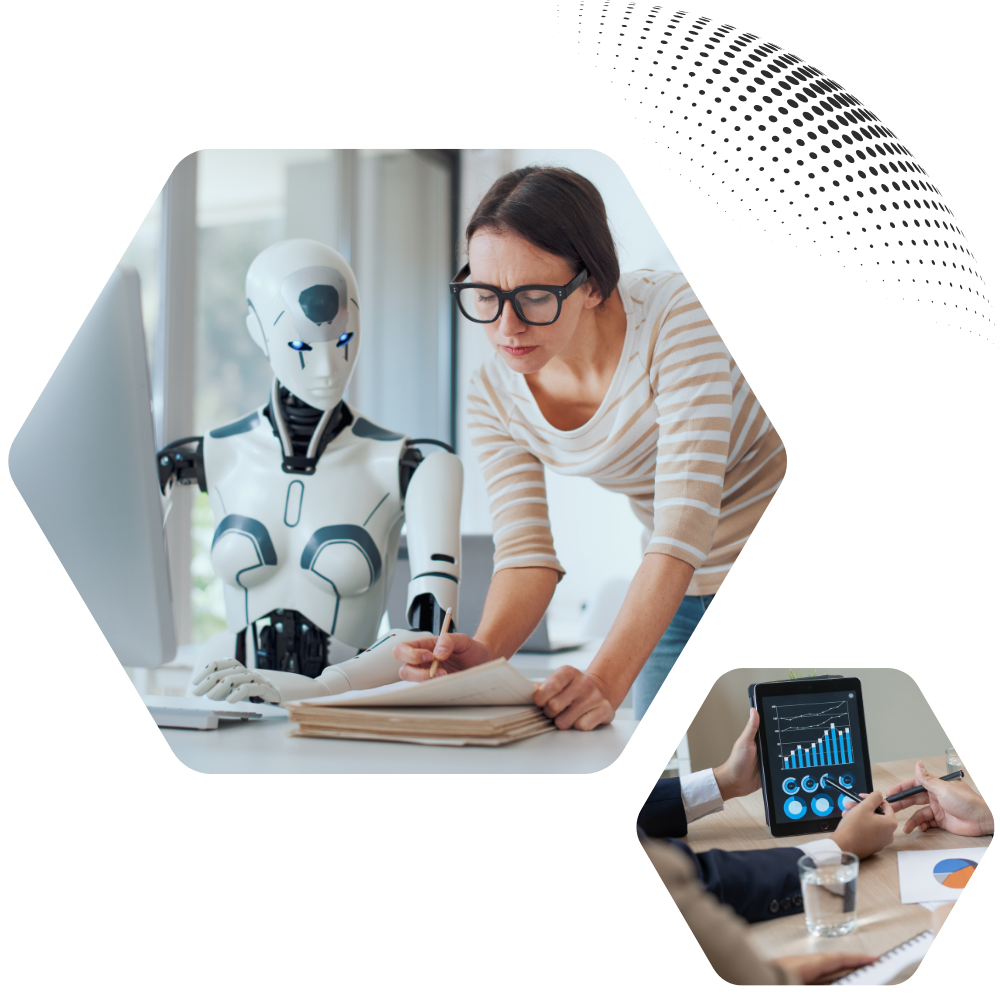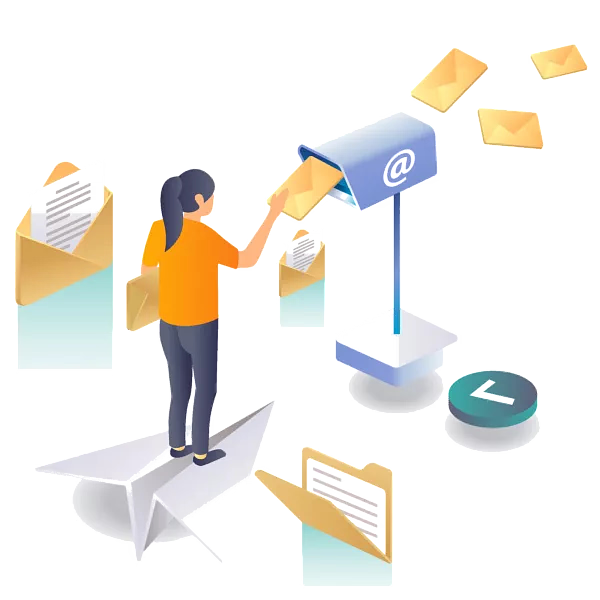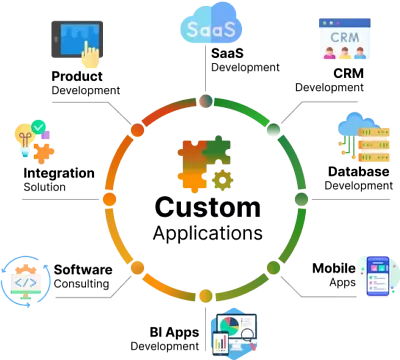Blockchain and ERP Integration: A New Era of Business Automation

In an age where digital transformation is accelerating at unprecedented speed, businesses are constantly searching for technologies that not only improve operations but also create scalable, secure, and transparent systems. One such revolutionary combination is the integration of Blockchain technology with Enterprise Resource Planning (ERP) systems. This fusion offers unparalleled potential in streamlining operations, enhancing security, and fostering trust in business processes.
Understanding ERP Systems
ERP systems are centralized platforms that help organizations manage core business processes such as finance, supply chain, HR, and manufacturing. While ERPs have significantly improved internal data management, they still face challenges:
- Lack of real-time data synchronization across partners
- Vulnerability to data manipulation
- High dependency on central authorities
- Limited transparency in multi-party transactions
Why Integrate Blockchain with ERP?
Blockchain enhances ERP systems by embedding trust and automation across organizational boundaries. Here’s why businesses are actively exploring this integration:
1. Enhanced Data Integrity
Blockchain’s immutability ensures that once data is entered, it cannot be altered. This eliminates fraud and unauthorized tampering in ERP-managed transactions.
2. Decentralized Trust
3. Smart Contracts for Automation
With blockchain programming, smart contracts can be embedded within ERP systems to automate workflows like payments, inventory restocking, and compliance reporting.
4. Transparent Audit Trails
Blockchain creates a clear and permanent record of all transactions, facilitating easier and faster auditing, compliance, and fraud detection.
5. Improved Supply Chain Management
ERP systems, when integrated with blockchain, enable complete traceability of products from origin to delivery, providing assurance of quality, authenticity, and ethical sourcing.
Role of Enterprise Blockchain Development Companies
- Blockchain strategy and consulting
- Custom blockchain development services
- ERP system integration
- Blockchain programming and smart contract development
- Ongoing support and optimization
These companies ensure seamless integration without disrupting current workflows and help leverage blockchain’s potential for long-term gains.
Real-World Use Cases
1. Supply Chain Transparency
Global manufacturers are using blockchain-ERP systems to track components from suppliers to end-users. Each touchpoint is recorded on the blockchain, enabling transparency and authenticity verification.
2. Financial Transactions and Auditing
3. Healthcare Data Management
Integrating blockchain with healthcare ERPs enhances data security and patient privacy while enabling seamless interoperability between providers and insurers.
4. Automotive Industry
From part sourcing to vehicle delivery, blockchain ensures real-time tracking and authentic records, minimizing recalls and ensuring compliance.
Key Features of Blockchain-ERP Systems
- Distributed ledger access across multiple stakeholders
- Real-time updates for enhanced decision-making
- Automated compliance checks with smart contracts
- Fraud prevention through immutable data records
- Global interoperability among disparate systems
These features transform ERPs from internal management tools into holistic, transparent platforms for ecosystem-wide coordination.
Challenges in Blockchain and ERP Integration
- Legacy system compatibility: Older ERP systems may require significant modification
- Scalability issues: Blockchain systems must handle high transaction volumes efficiently
- Skill gaps: Requires collaboration with a knowledgeable blockchain software development company
- Cost of implementation: Initial investments may be high, but ROI is promising over time
- Data privacy and governance: Careful planning is needed to ensure privacy laws and data governance standards are met
Steps to Implement Blockchain in ERP
Here is a step-by-step guide to integrating blockchain with ERP:
Step 1: Assess Business Needs
Step 2: Select the Right Blockchain Platform
Choose a suitable blockchain platform (Hyperledger, Ethereum, Corda) based on business requirements, scalability, and regulatory needs.
Step 3: Partner with Experts
Engage an experienced blockchain software development company for feasibility analysis, custom development, and integration planning.
Step 4: Develop Smart Contracts
Use blockchain programming to create smart contracts that automate critical ERP workflows like approvals, payments, or order fulfillment.
Step 5: Pilot and Iterate
Run a pilot integration with minimal disruption. Monitor performance, gather feedback, and scale gradually.
Step 6: Full-Scale Deployment
Choosing the Right Blockchain Development Partner
- Experience with enterprise systems and ERPs
- Proficiency in blockchain programming and smart contract development
- Track record with cross-industry use cases
- Strong security and compliance protocols
- Post-deployment support and scalability planning
Future of Blockchain in ERP Systems
The convergence of ERP and blockchain is still in its early stages but rapidly gaining traction. As blockchain matures and becomes more scalable and accessible, more organizations will move toward decentralized ERP ecosystems.
- AI-integrated smart contracts for dynamic automation
- Interoperability protocols for seamless data exchange between different blockchains and ERP vendors
- Decentralized identity systems to enhance data ownership and access control
- Tokenization of assets within ERP workflows for new economic models
Industry-Specific Advantages of Blockchain-ERP Integration
While the general benefits of blockchain-ERP integration are compelling, industry-specific use cases provide even deeper insights into how this powerful combination can transform operations. Here’s how leading sectors are leveraging the expertise of an Enterprise Blockchain Development Company to build next-generation enterprise systems:
1. Retail and E-commerce
- Example: A fashion brand uses a blockchain-enabled ERP system to track raw materials from sustainable sources, sharing this data with customers to prove authenticity and ethical sourcing.
2. Pharmaceutical and Healthcare
- Benefit: Improved trust among stakeholders and adherence to global health regulations.
A blockchain software development company with healthcare expertise can develop HIPAA-compliant blockchain solutions integrated with existing ERP platforms to protect patient data while enhancing interoperability.
3. Energy and Utilities
- Use Case: Smart contracts automate energy credit trading between prosumers and consumers, reducing the need for manual reconciliations and third-party verifications.
4. Finance and Insurance
- Advantage: Faster transaction settlements, automated reconciliations, and improved customer trust.
A specialized blockchain development service provider can implement permissioned blockchain networks tailored for financial ERP systems, ensuring scalability and security.
Driving Long-Term Business Value
The integration of blockchain with ERP is not merely a technical upgrade—it’s a strategic move toward creating resilient, agile, and future-ready businesses. Here’s how enterprises can maximize long-term ROI:
- Foster Collaboration Across Departments: Unified data from blockchain-integrated ERP systems enhances collaboration between finance, logistics, procurement, and HR.
- Accelerate Digital Transformation: With real-time visibility and automation, businesses can make data-driven decisions faster than ever.
- Future-Proof Infrastructure: Blockchain’s adaptability ensures that ERP systems remain scalable and compliant with future industry trends and regulations.
Final Thoughts
Blockchain and ERP integration represents a significant leap forward in business automation. It brings the power of decentralization, transparency, and security to enterprise systems that were previously siloed and centralized.
Ready to Transform Your Business with Blockchain-ERP Integration?
Unlock the full potential of your enterprise systems by partnering with a trusted Enterprise Blockchain Development Company. Whether you’re looking for expert blockchain programming, seamless ERP integration, or end-to-end blockchain development services, our team of seasoned professionals is here to guide you every step of the way.



